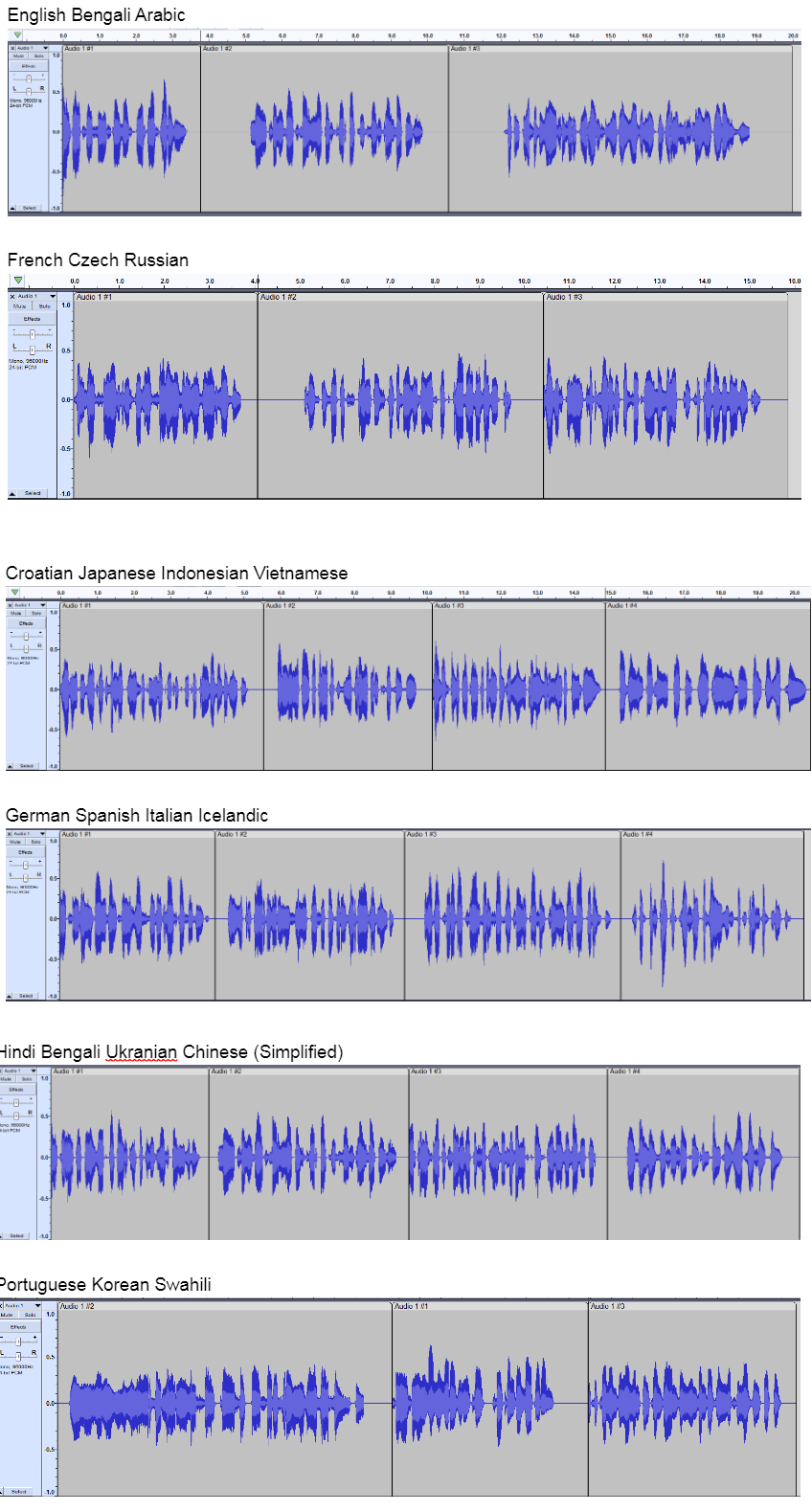A common voice for a heliospheric species means all humans can speak a universal language that tokenizes into a small set of global open acoustic elements
https://twitter.com/RichardKCollin2/status/1780689819531624523
It is NOT impossible. Can anyone help distill a common voice for a heliospheric Internet for 20 Billion humans and AIs? Audacity recordings of Google Translate voice of “girl boy tree sand sky house bird grass water wind” clipped to Paint to twitter(X). (@elonmusk)
One small set of tokens for ALL phonemes and sounds, global human voting and refinement, finite global open resource, collaborative (and somewhat competitive) best Internet wide tools. Ultrafast AI training for all humans to pronounce and produce, AI enabled capture, one interface language for all current languages, broad enough for all languages. Small enough to embed. Some groups can go as deep as they like. Global semiconductor industry donates open hardware (print on demand), AI industry donates open and continuously updated “global open resource” for the common language. Since speech to text has many mathematical, and other symbols, those can be included for millions of domain specific languages and their “words” and sounds can be made global open tokens for AI input data processing, where a global open “Internet content” is indexed by lossless and statistical (LLM kinds) of methods – but ALL open to ALL.
If someone can help me, it can be put into a formal global open project, openly discussed and continuously improved. But corporations (governments, organization, ad hoc groups) using old “human-in-the-loop” processes now are going to have to stretch and grow.
“Continuous improvement” becomes a powerful tool when used by 8.1 Billion humans and no one held out by artificial barriers. A fully “anyone can talk to anyone, anywhere about anything” human (and their AIs) species is possible. Heliospheric exploration, development, and colonization requires it. But it cannot be “colonies” like in the past (that can be discussed if @X can get its act together and get Grok out of the starting gate.) It cannot be “human in the loop corporations” like in the past, running off paper slips and human memories, closed and unverifiable.
[ Do NOT let anyone at X post Grok materials on X unless you absolutely show clearly what human did it and that it is Grok. Do NOT post Grok generated “news” full of click bait and the old useless run of hype and “trying to excite controversy” adjectives and vague incitements. No exceptions. ]
Filed as “A common voice for a heliospheric species means all humans can speak a universal language that tokenizes into a small set of global open acoustic elements”
It can be written in one binary text, human and AI versions, generated nearly losslessly, transcribe and capture all current languages, and be adapted to fast human-to-AI interfaces as humans become proficient in a universal way of speaking and interacting. Same for 450 Million deaf, other machine learnable finite data streams. Stop studying only and find the global open resources that will hold together a heliospheric civilization with an economy 1000* today’s.
Richard Collins, The Internet Foundation
As I understand it, Sejong created Hangul and it allows ANYONE to write down (now we use a device) what they say out loud. That is an encoding that references unique global open flexible sound elements. The core of written language is alphabets and spellings that only partially capture what a robust machine algorithm can do perfectly. Make device that can show how close you are and humans can learn universal “all sounds” way of communicating that transcribes precisely and unambiguously to a global open sound tokens. When a person speaks an ordinary language they might speak ambiguously. But when everyone can also speak a universal language, they will also be able to transcribe any language using the same universal sound set. No one is forced to listen, but at least the sounds are simplified for human-human language communication and for human-ai and ai-human. I have worked on that for 58 years and had to wait until now for the tools.
Why bother? How? That is for another time.
